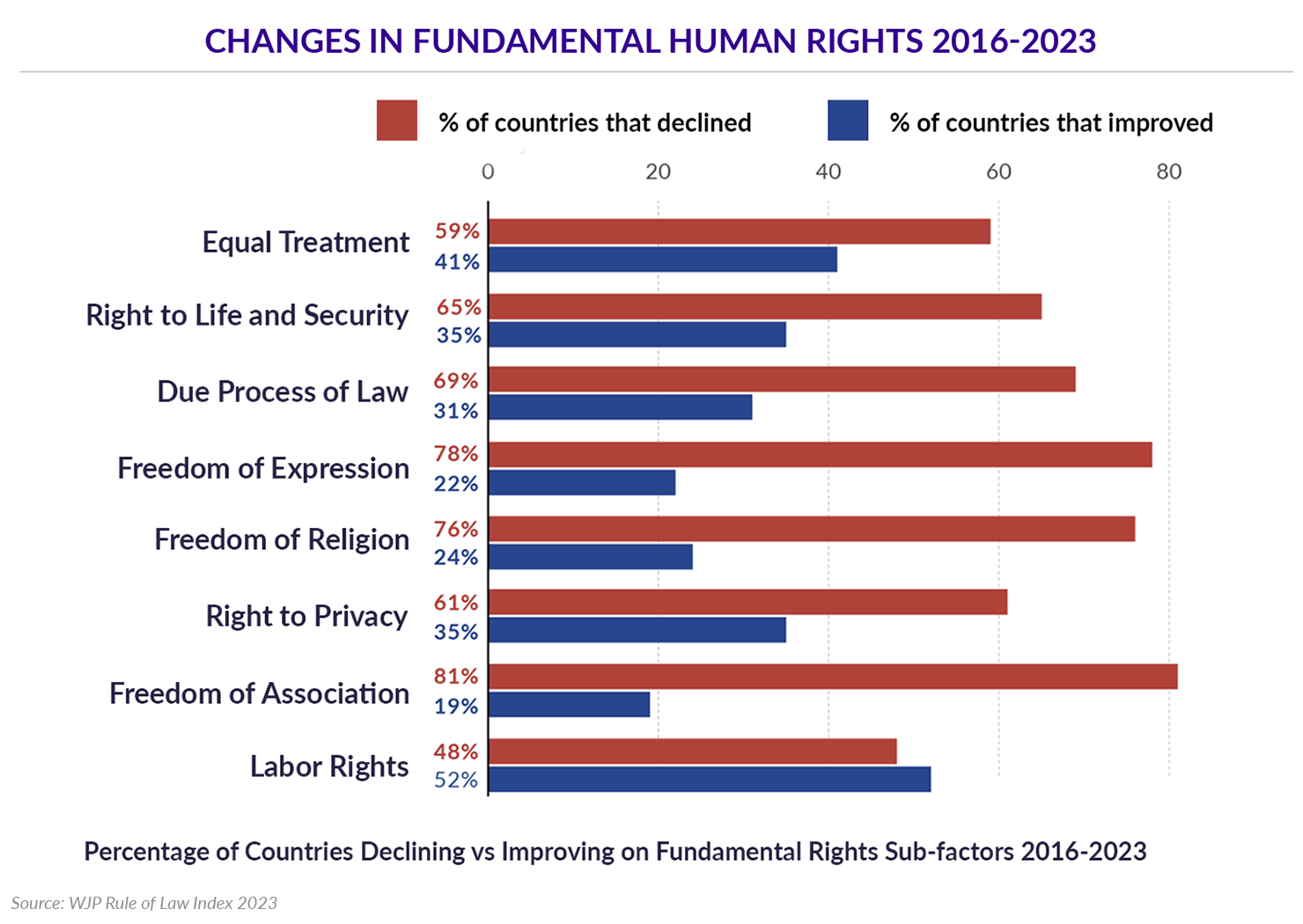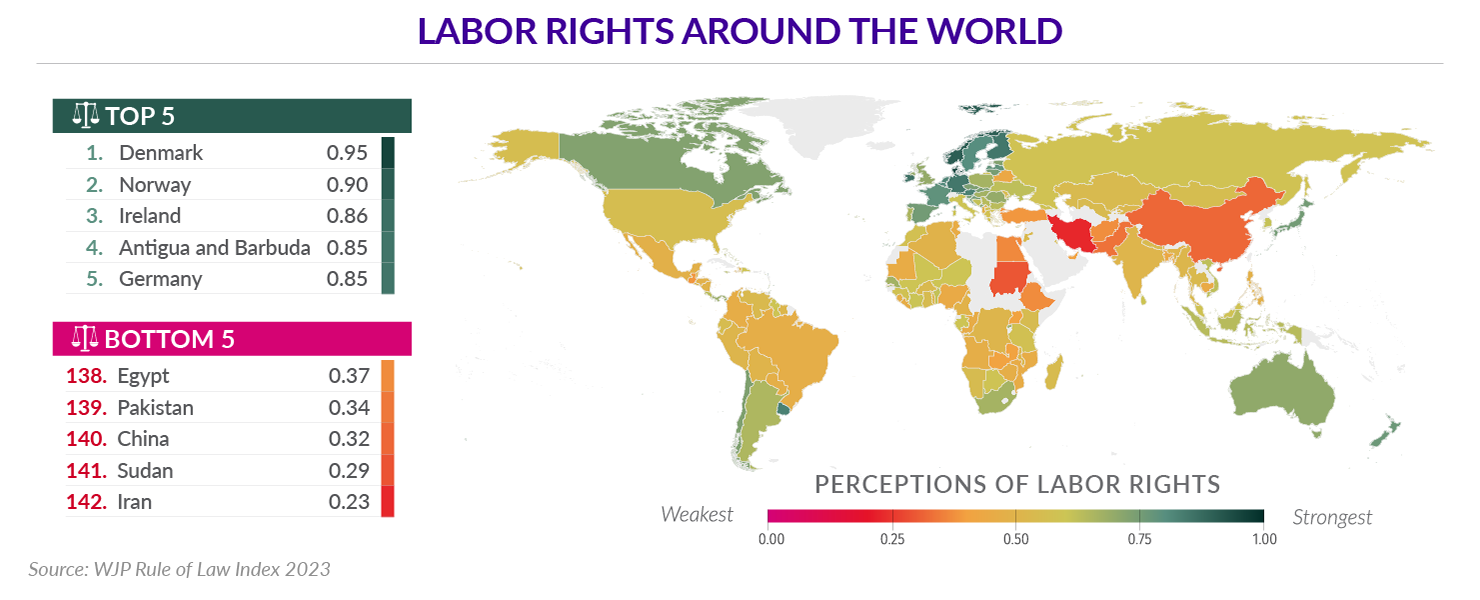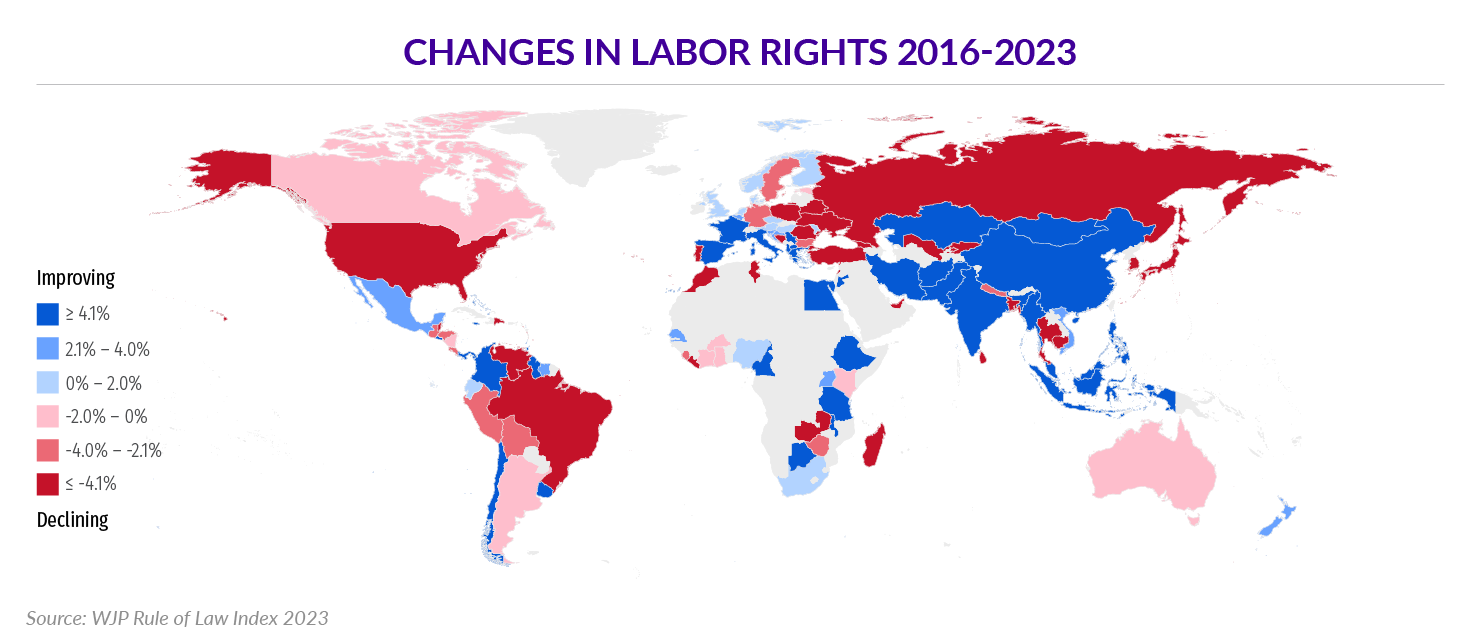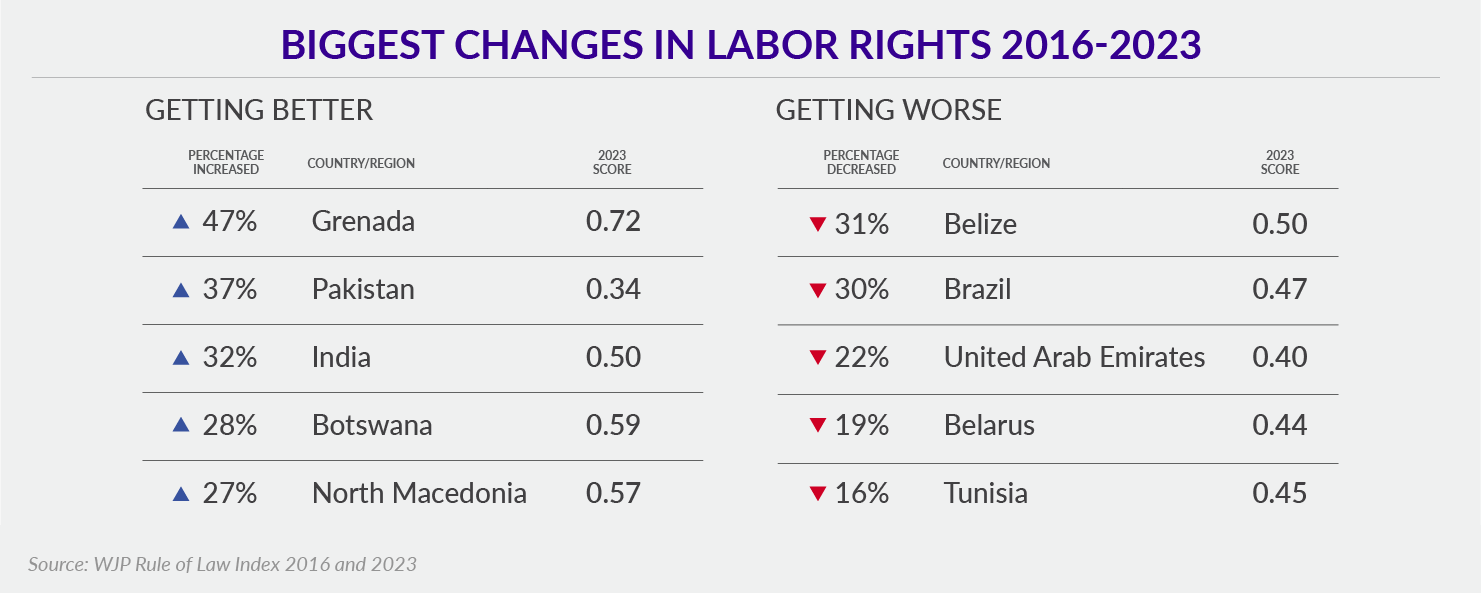

Around the world, fundamental human rights have been declining since 2016. Labor rights is the exception.
The annual World Justice Project (WJP) Rule of Law Index measures rule of law performance around the world. Since 2016, more countries’ scores have declined than improved each year, marking the global rule of law recession that continues today.
Nowhere have setbacks been more widespread than in fundamental human rights. More than three-fourths of countries have seen their scores go down since 2016.
However, when we look closer, we see one exception to this trend. Among the eight indicators of fundamental rights that the Index considers, labor rights stands out.
A slight majority of countries—52%—have actually improved on this important rule of law indicator.

As with all WJP Rule of Law Index sub-factors, labor rights scores for the 142 countries and jurisdictions in the latest edition are based on surveys of legal experts and a representative sample of people living in the country. The labor rights questions assess people’s perceptions and experiences on equal payment, absence of labor discrimination, the freedom to form unions and bargain collectively, and prohibition of child and forced labor.
Denmark has the highest score on labor rights (0.95 out of 1), while Iran has the lowest (0.23).

Among the 113 countries included in the Index since 2016, 59 have improved, while 54 have declined.

Although the dark blue on the map above looks impressive, it’s important to note that many of the improving countries still have low scores. Nonetheless, they are heading in the right direction—at least when it comes to labor rights. Rule of law progress is slow and often unsteady, and it takes deliberate and sustained commitment to maintain.

At a time when rule of law is experiencing widespread declines around the world, the recent trajectory of labor rights is a relative bright spot in a variety of countries. Still, there is an urgent need to address egregious issues including human trafficking, slavery, and crackdowns on workers’ rights around the world.
As the world's leading source of original, independent rule of law data, the WJP Rule of Law Index® provides policy makers, global development agencies, and advocates with unbiased data to help them design and track much-needed reforms.






